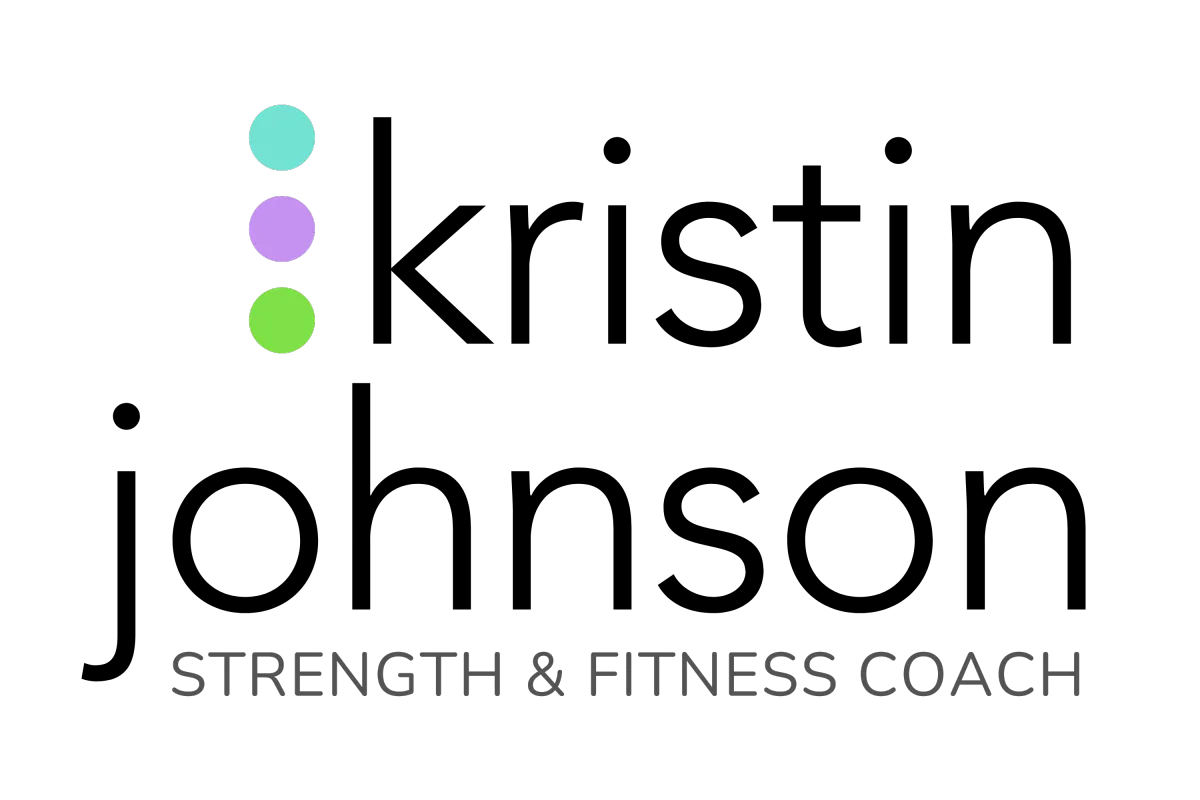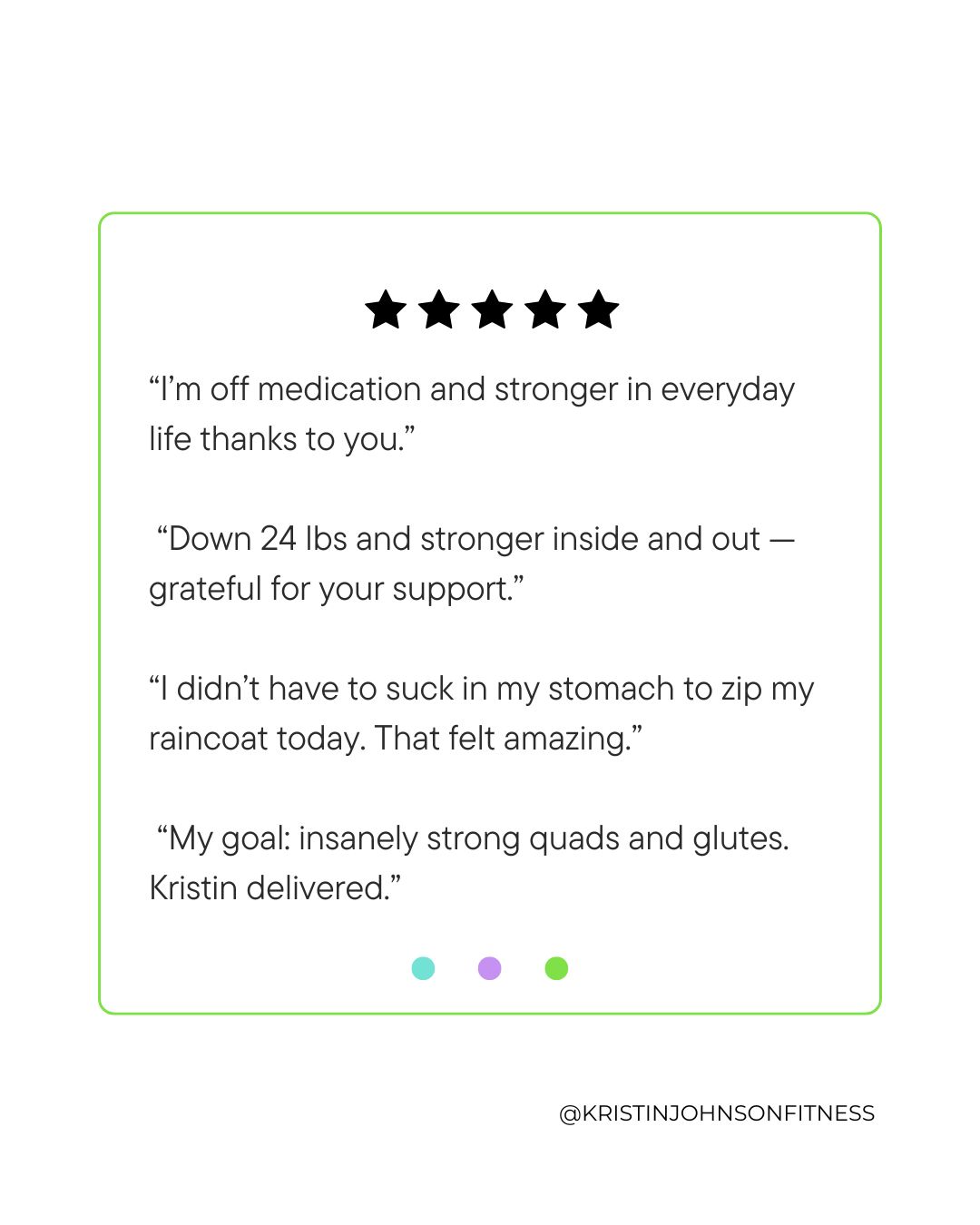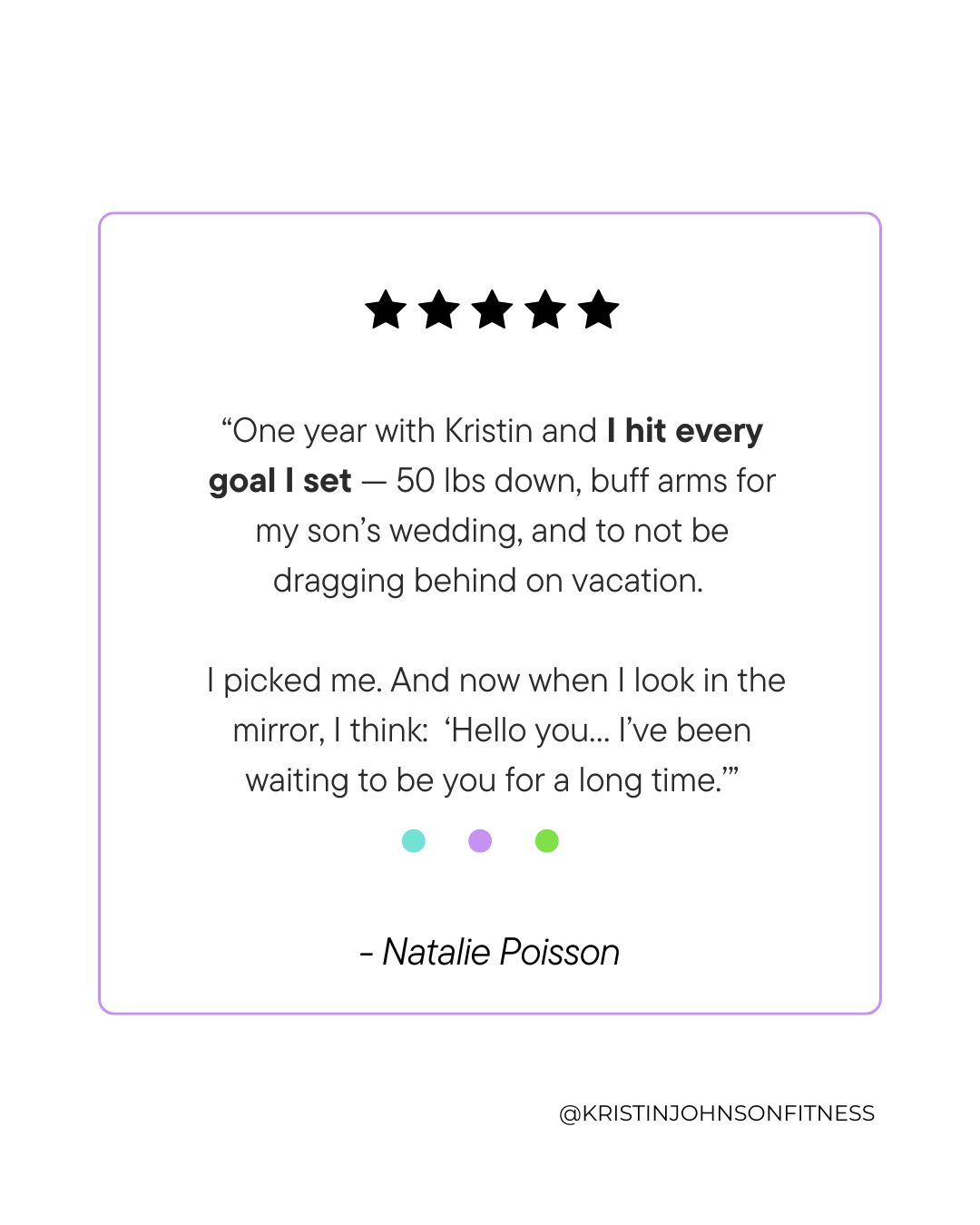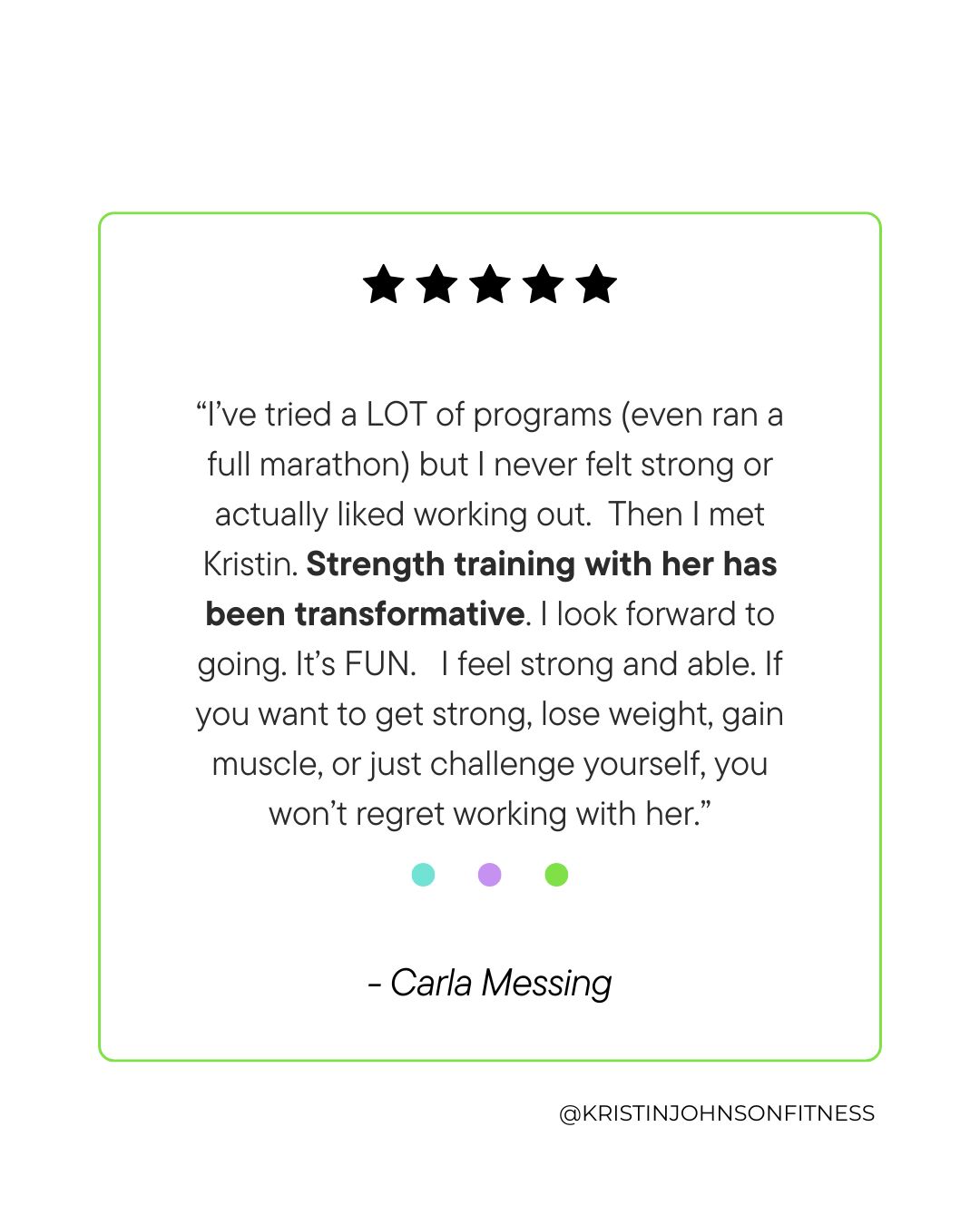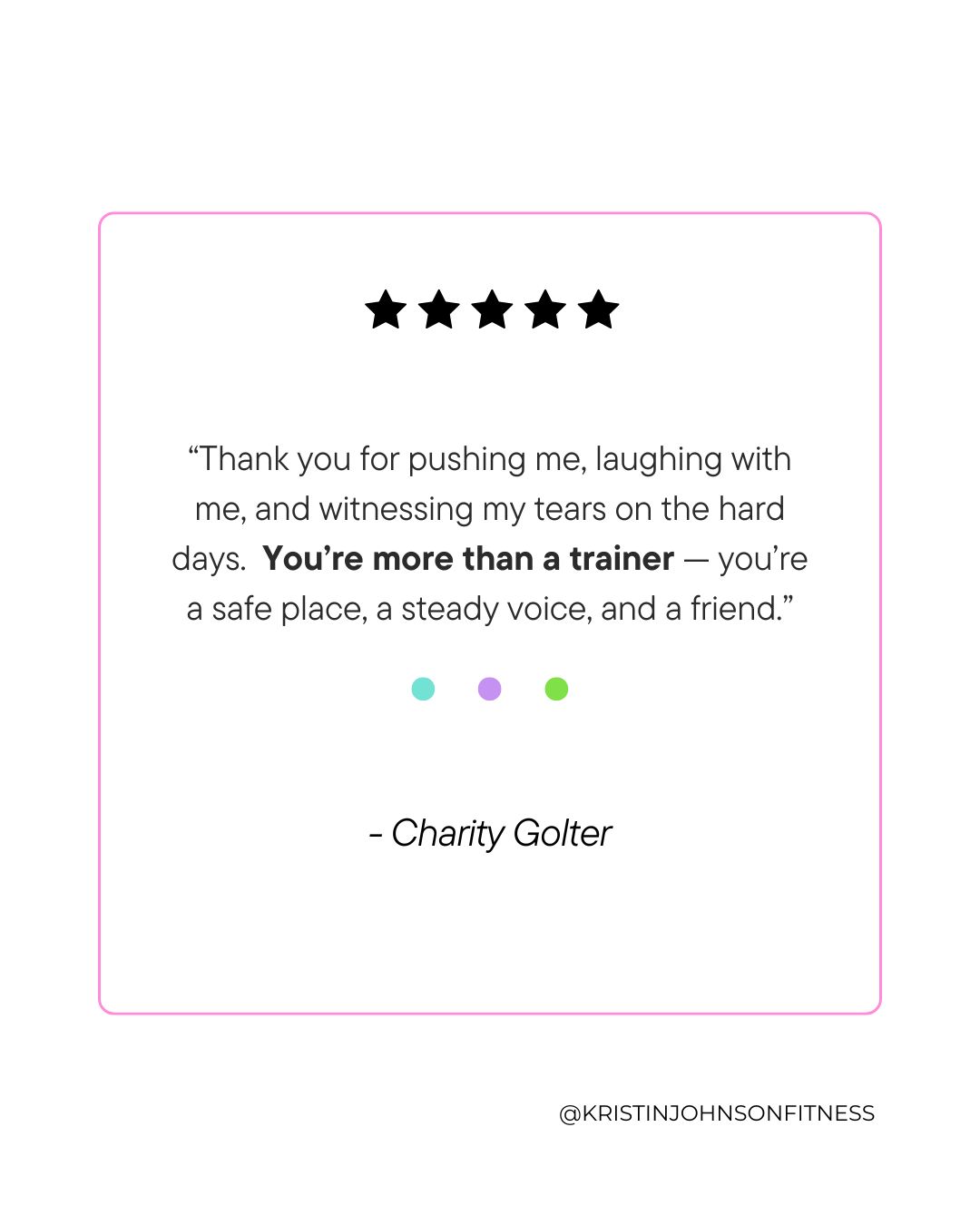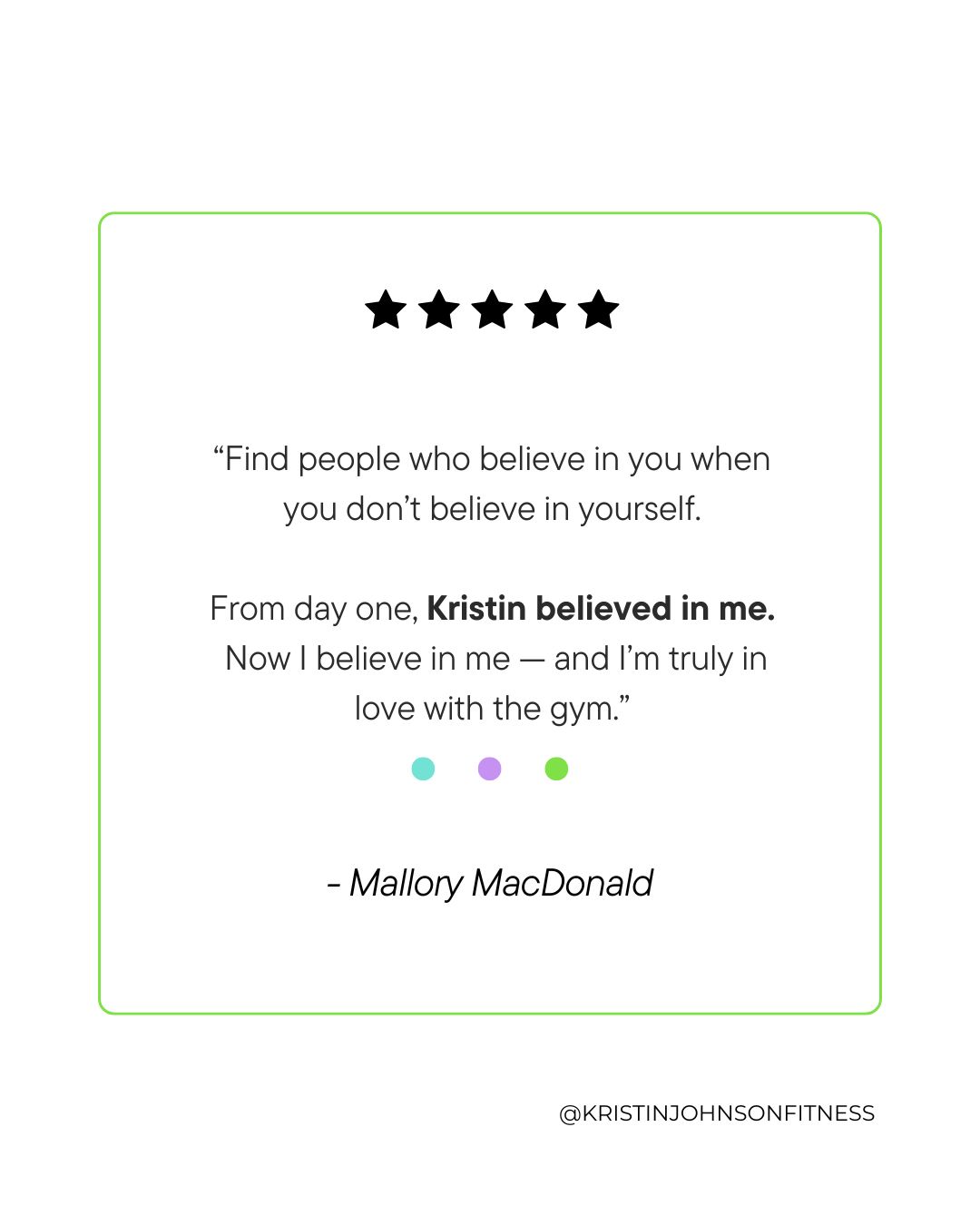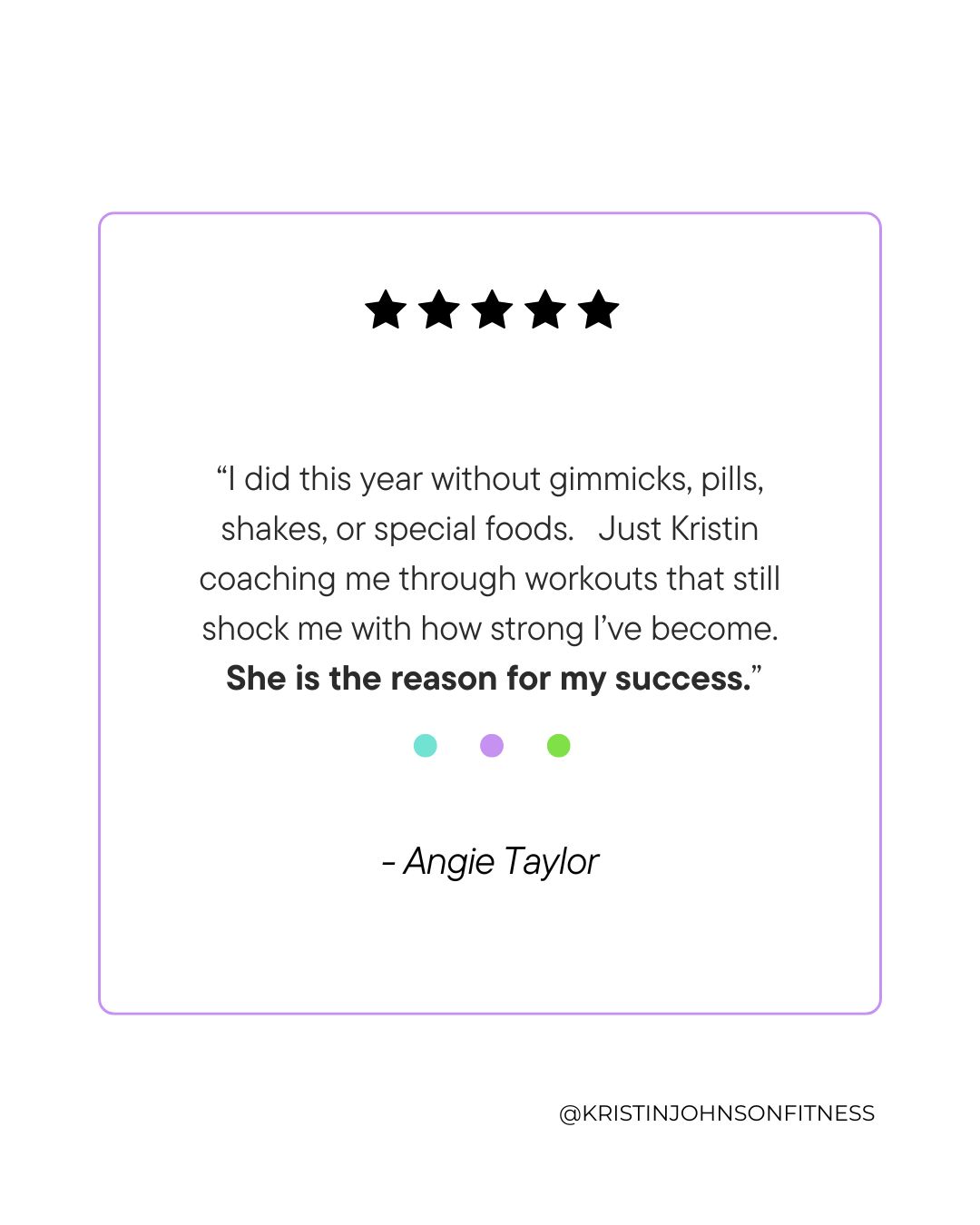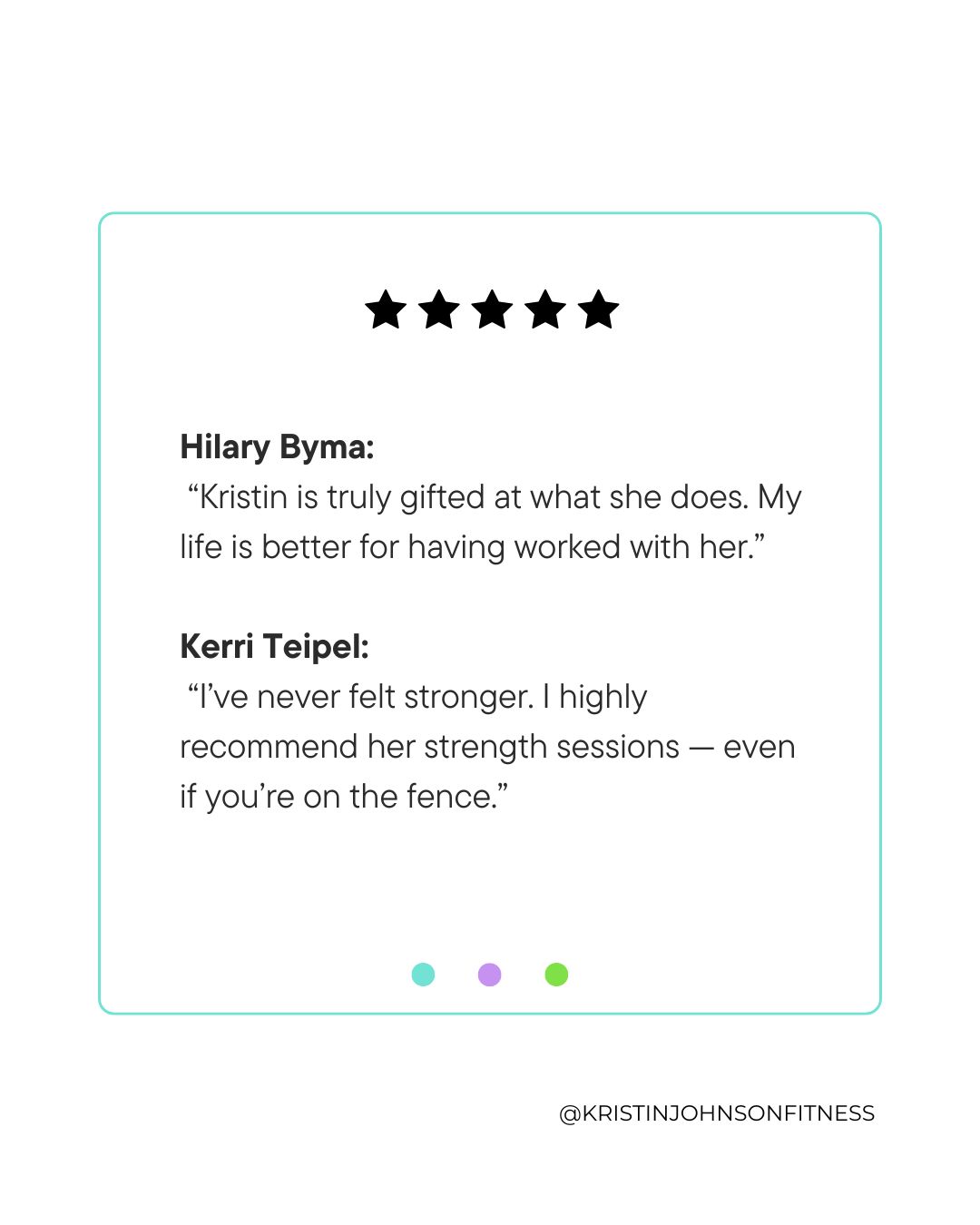TRAIN SMART.
GET STRONG.
LIVE UNCHAINED.
Just two 30-minute sessions a week.
Strength training that builds results, confidence, and freedom, so you show up stronger everywhere else.
TRY A SMARTER WAY TO WORKOUT
These are the non-negotiables that get you results.
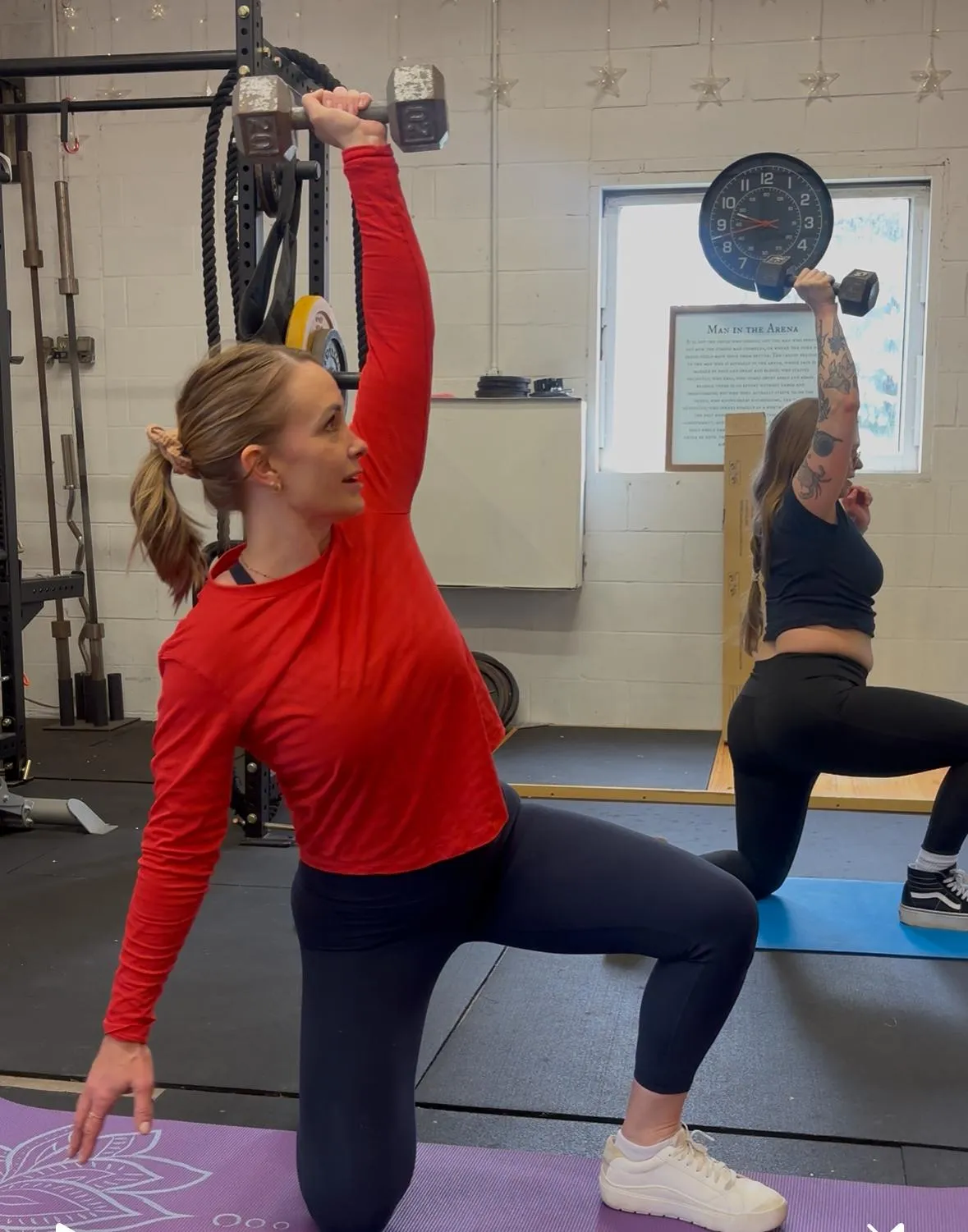
Efficient Training
We get the most work done in the least amount of time — on purpose.
Not lazy. Just smart. Just sustainable.
30 minutes. Full body. Real strength.
Two sessions a week > your friend’s five random “workouts.”
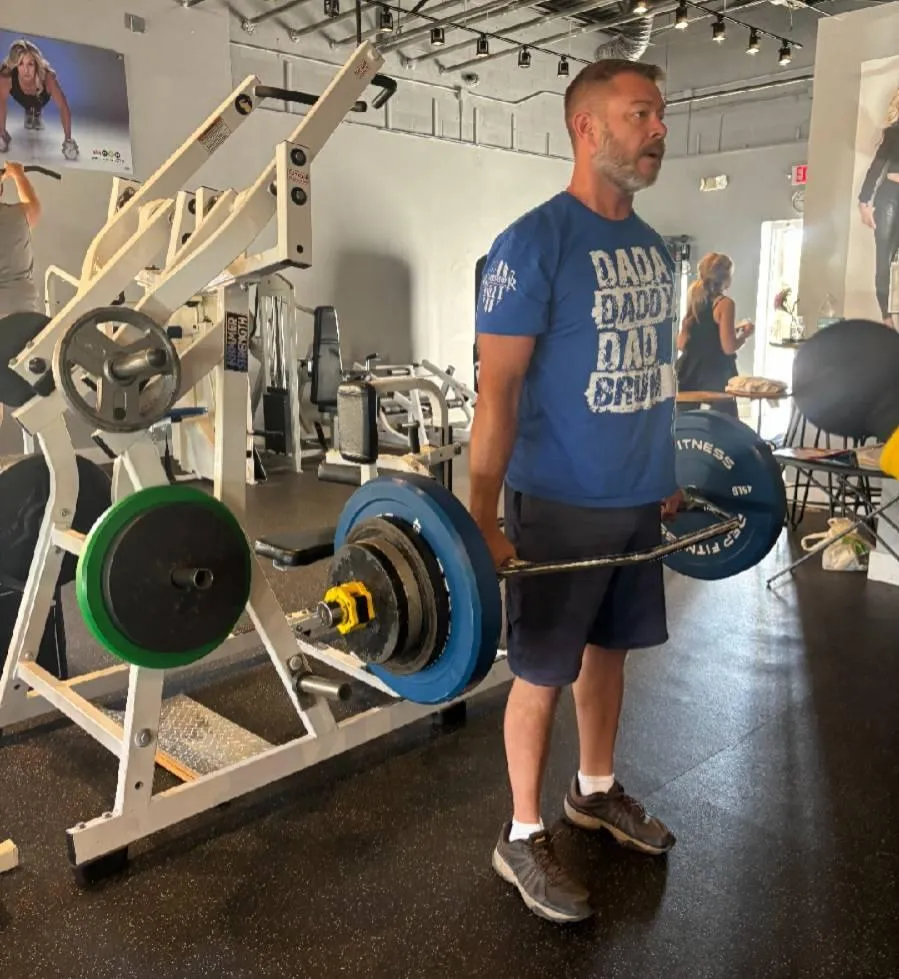
Safe, Always
Form is everything.
We push hard — never at the cost of blowing you up.
Safe + sustainable is how you actually keep winning. Long term.
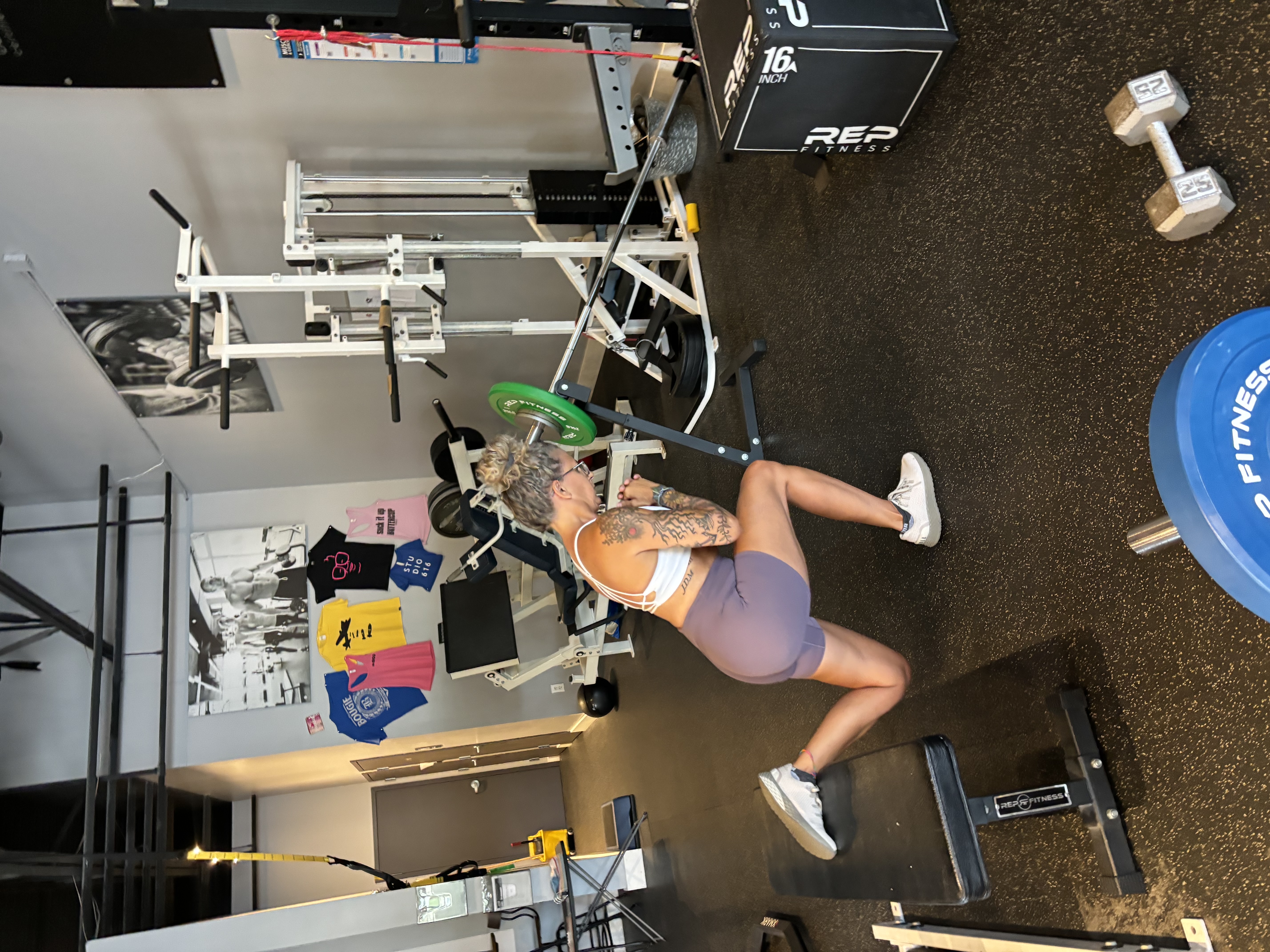
A Real Plan
Every session follows a clear progression toward your goals.
No crowds. No scrolling. No guessing.
Just no-wasted-time strength training that actually moves the needle.
⭐️ ⭐️ ⭐️ ⭐️ ⭐️
"I thought I was training hard - until I met Kristin.
After my first session I realized… I wasn’t even close"
- Olivia VanderTil
You don't have time to waste on workouts that don't work.
You don’t have to live in the gym to get results. I deliver 30 minute full-body sessions, 1-3x a week.
With my proven training approach, I'll help you look and feel your best in a fraction of the time.
Sound Familiar?
You don’t have time for 5–6 day programs.
You’ve tried “all the things” but still don’t see the results you want.
You want to feel strong and look lean without living in the gym.
You’re tired of extreme diets and workouts that burn you out.
Let's fix that.
WHAT YOU CAN EXPECT
Focused, efficient training that fits your life — and actually works.
Here’s the flow:
→ Warm up on your own
→ High-effort, 30-minute strength session
→ Cool down/stretch if you need it
→ Walk out stronger and get on with your day
Simple. Effective. Results you actually feel.
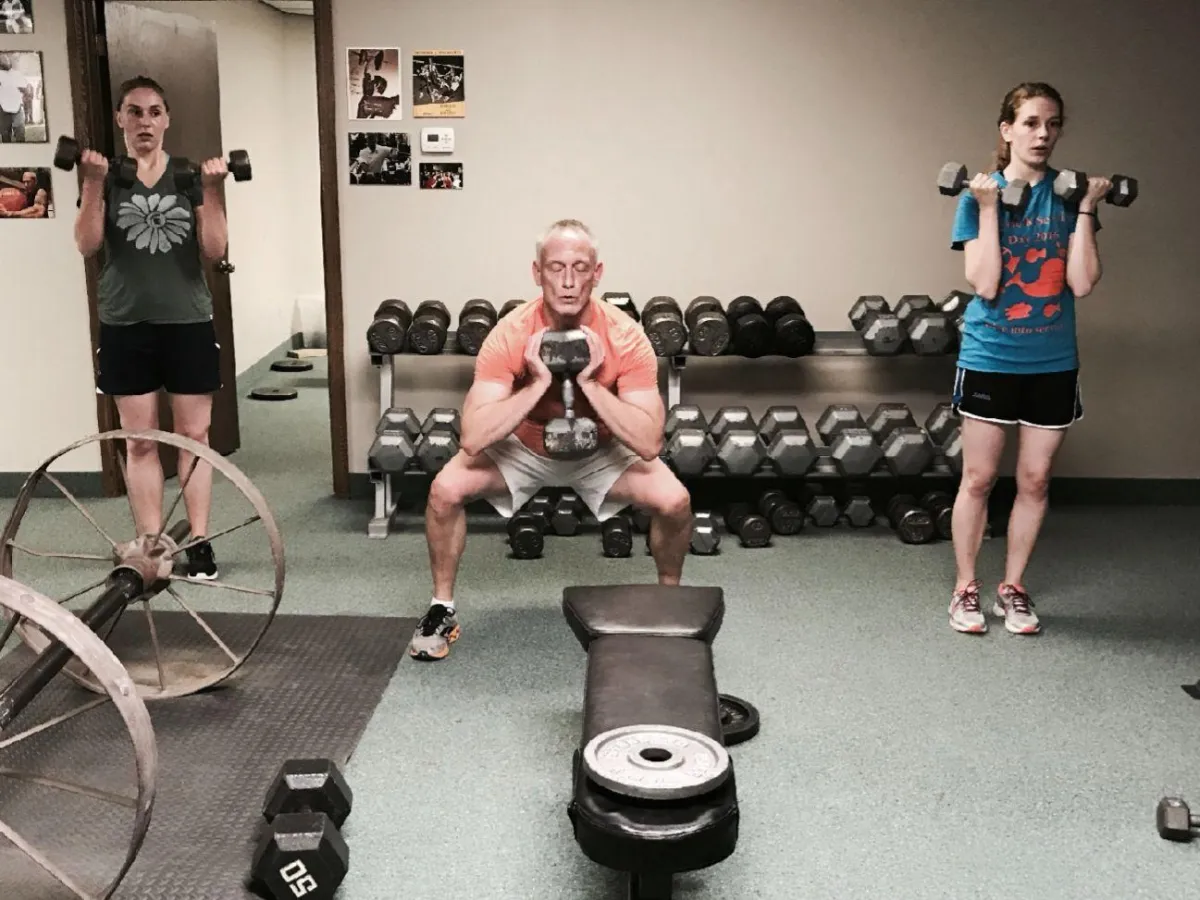
1–3 people max per session → Personalized coaching. Zero wasted time.
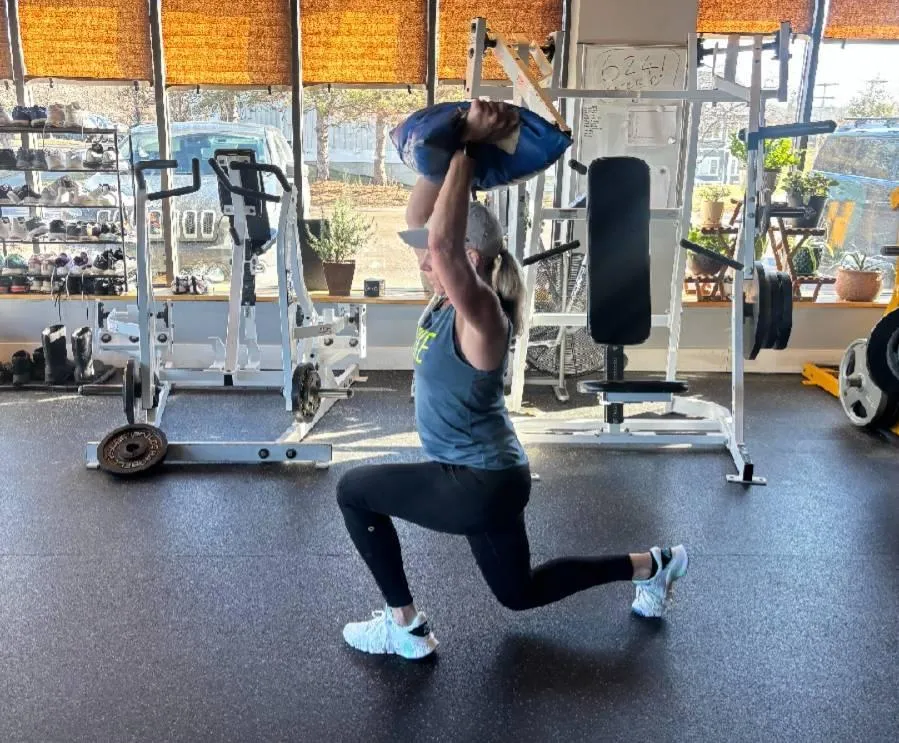
No Fads. Just simple, science-backed strength training that delivers.
STRENGTH FOR LIFE
The best part? You carry that strength into every part of life. You walk taller. Speak up more. Go after things you used to avoid.
Clients stay with me for years. Not because they have to, but because this actually works for real life and busy schedules.
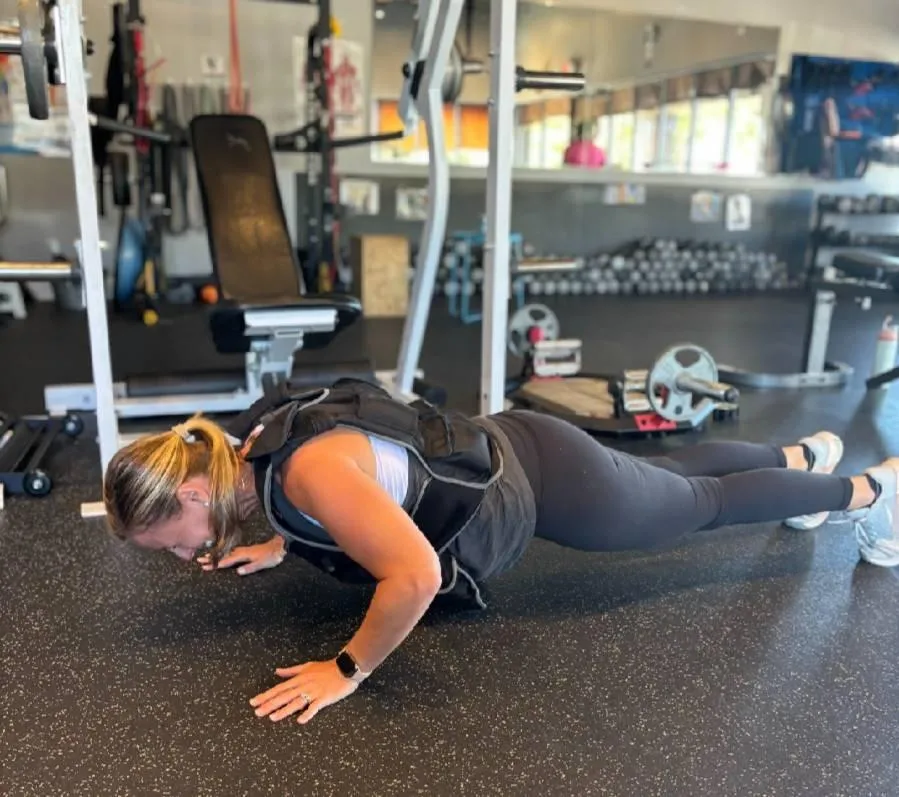
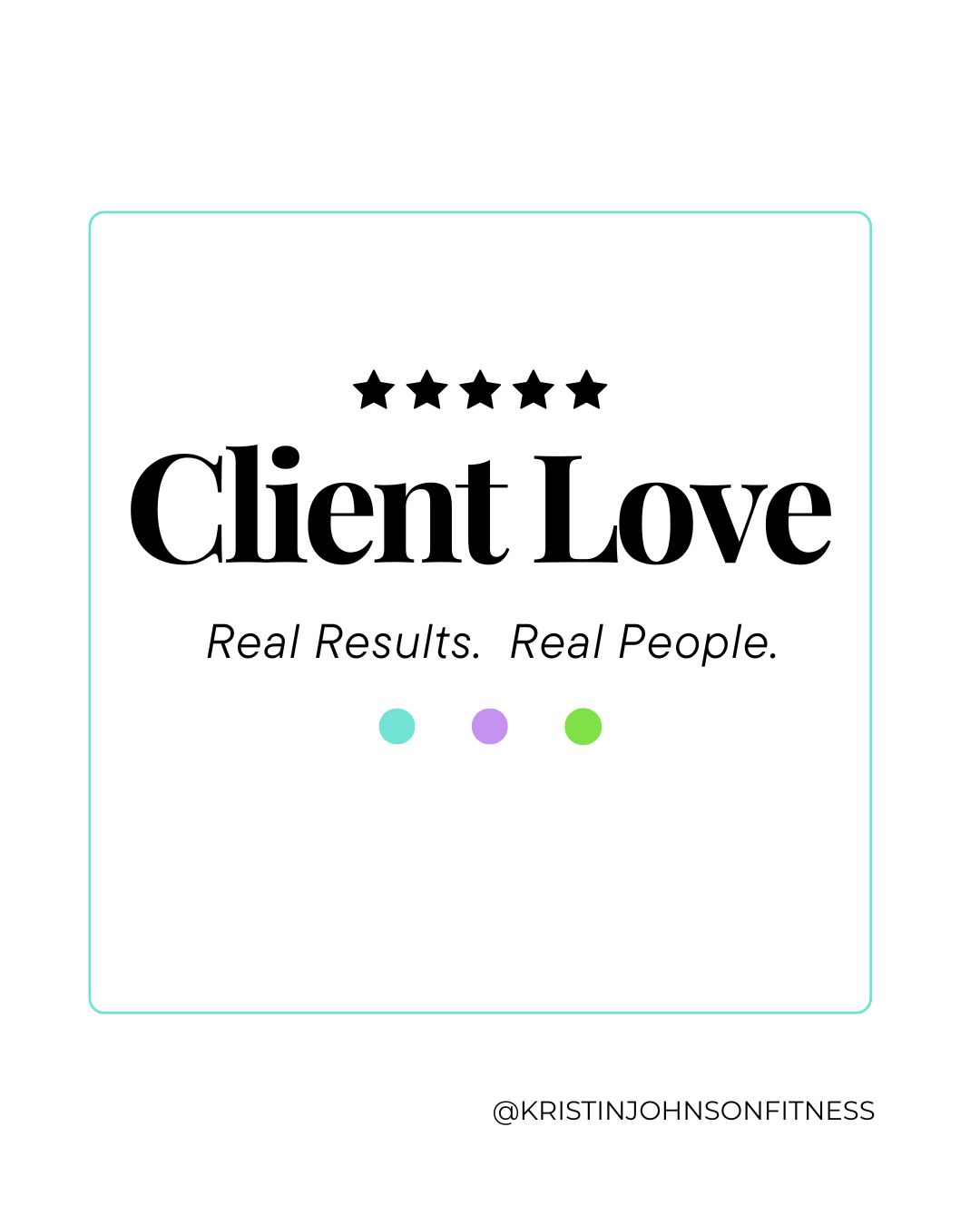
HERE'S THE PLAN:
① Fill out Interest Form
Drop your info below and I’ll get back to you within 24 hours. If you need a call first, we’ll set one up. If you’re ready to roll, I’ll text you and get your intro workout on the books.
② Choose Your Plan
I’ll recommend the option that fits your goals, budget, and lifestyle — and you pick what feels right for you.
③. Train 1-3x a week
Start your strength training and actually see results without living in the gym. Train smart. Get strong.
Starting at $175/mo
Interest Form
APPLY FOR GRIT & GLITTER WOMEN'S COACHING
You're entering the application for my Women's 12 Week Transformation Coaching Program. The program is fully online - App based and Zoom - but can be combined with in-person training if you live close enough to get to my gym.
Answer these next questions straight up. Everything you share stays confidential.
PERSONAL TRAINING INTEREST FORM
What Clients Are Saying
These are just a few of the people who’ve transformed their strength, confidence, and routine.
“I was lifting, running, doing spin class, and many other workouts but I didn’t start to see any progress until I met you”

Tara
Bought the smallest dress size I have worn since I got married and i feel amazing! Couldn’t have done it without you!

Kristin
Hands down one of the
most knowledgeable trainers
I’ve been around.... highly recommended!

Hilary
Kristin Johnson helps busy people get strong in less time with efficient, high-effort, 30-minute training. She also leads Grit & Glitter — her signature women’s coaching program focused on fat loss, strength, and freedom.
Lift Heavy. Live Unchained.
© 2025 Kristin Johnson Fitness
Terms and Conditions | Privacy Policy | Disclaimer | Refund Policy
